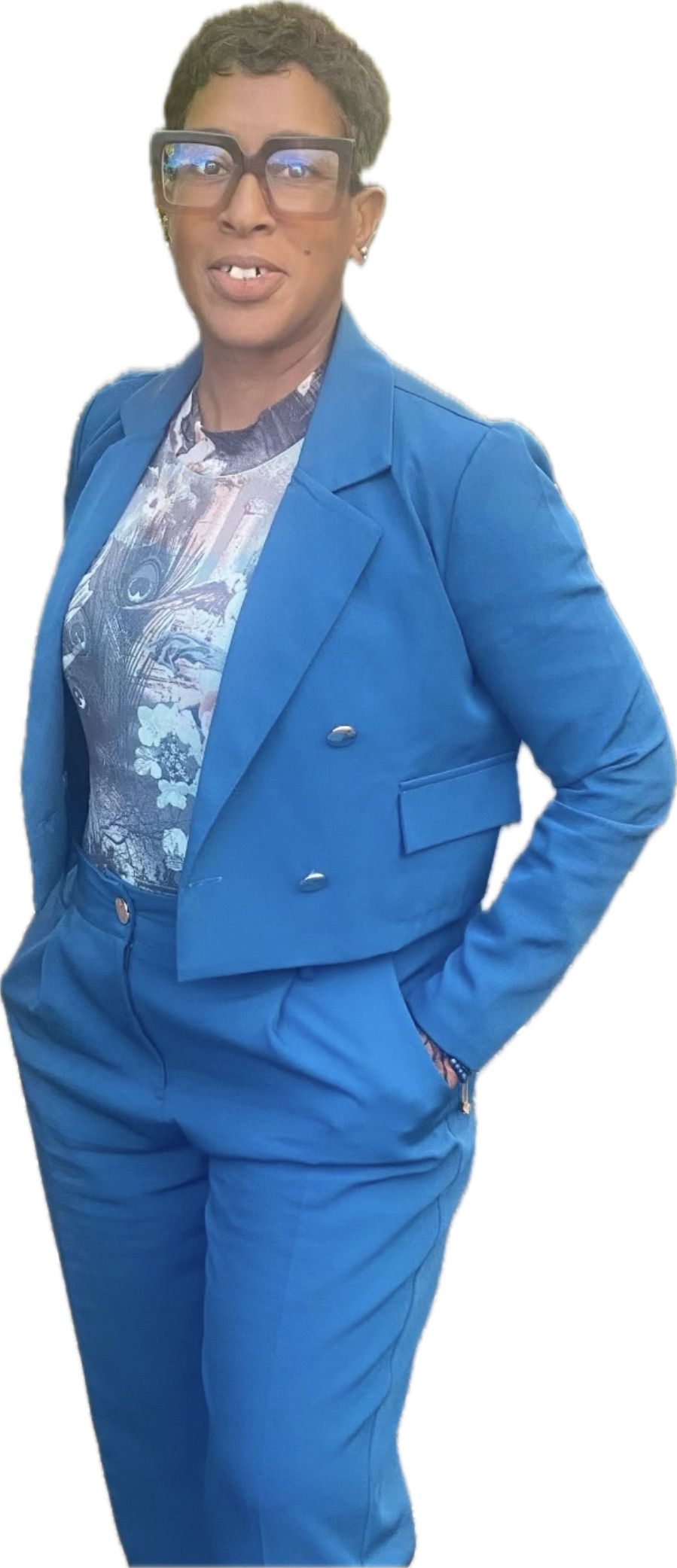Kelly Morgan
- Ena-Alese
- Aug 17, 2025
- 5 min read
Pre-Interview: Kelly Morgan is an indie author, publisher, and host of Author’s Mic and BTA Fridays – Breaking the Algorithm™. Through her company, Bright Headed Publishing, she uplifts underrepresented voices and equips indie authors with practical, low-cost strategies to get seen, get read, and get paid. Kelly is the author of the novels Weight For It and You Sound White, and a passionate advocate for building real connections over chasing algorithms.

Author Interview:
1.What inspires you most to write?
Honestly, a mix of things. People have told me to “write what you know,” and I really take that to heart. Even when I’m writing fiction, I like to weave in bits of truth from my own life experiences. I’ve always had an active, vivid imagination, so I’m never short on ideas—sometimes stories just play out in my head like little movies, and I feel like I have to get them down on paper. I love stories, and writing is my way of giving them a place to live.
2. What is your favorite genre?
I don’t really have a favorite genre. I just love a good story. It doesn’t matter if it’s drama, a documentary, historical, erotica—if it’s about a real person or completely made up—if it’s well told, I’m in. For me, it’s all about the story, not the category.
3. Who is one author you admire, if any, and why?
Maya Angelou. Her work has a rhythm and truth to it that’s unmatched. She could tell a story or share a lesson in a way that felt deeply personal but universally understood. I admire how she used her life—both the beauty and the struggle—to create something that still inspires people today.
4. How do you overcome blank writing spells?
Honestly, I don’t think I’ve ever had a “blank writing spell.” I always have a story in my head. Now, is every single one worth writing down? Not necessarily. I’m not compelled to write every idea I come up with, but if a story sticks with me—if it keeps coming back over and over—that’s when I know it’s worth putting on paper. Right now, for example, I’m working on a children’s book. I’m not a children’s book author by trade, but I can’t get this idea out of my head, so I have to write it.
5. What legal publishing advice can you give?
Copyrights, hands down. I’ve copyrighted both of my books, and I even did a whole episode of The Author’s Mic on the topic. I think it’s so important that I created a free copyright checklist that’s available on my Linktree. Your work is automatically protected the moment you create it, but taking that extra step to officially register it gives you stronger legal protection. I always tell authors—don’t skip it.
6. How many books have you written, are any a bestseller yet?
I’ve written two books—Weight For It and You Sound White. I didn’t write them with the idea of being bestsellers in mind. I wrote them because I love stories, and I thought someone else might love them too. Honestly, the whole “bestseller” thing never crossed my mind… but now that the seed’s been planted, why couldn’t either one be a bestseller? Who knows? I’m running with that.
7. If you had the opportunity to rewrite one movie script, which would it be, and why?
I’d take the elements of Soul Food and reimagine it. I love that movie—it’s warm, funny, and full of heart—but sometimes movies with Black casts lean too heavily on stereotypes instead of showing us in all our authenticity. I’d keep the family bond and the generational dynamics, but I’d expand on the characters and give them more depth, showing our lives in a fuller, richer way without falling back on the usual tropes.
8. What are some difficulties you’ve experienced in your writing career; how do you handle book critiques/criticism?
Visibility has been the biggest challenge. That’s really what my whole platform is about—helping indie authors get seen and figure out how to market their work, because the writing is only half the battle. Once your book is out there, you have to make sure people actually know it exists.And with visibility comes criticism. The minute you put your work out, you’re opening yourself up to it. I’ve accepted that not everybody’s going to like my work, the same way I don’t like everything that’s out there. Is there really such a thing as constructive criticism? Maybe—but at the end of the day, if someone doesn’t like something, they just don’t like it. Somebody once told me, “What you think about me is none of my business,” and I’ve carried that with me.
9. What are your best experiences in your writing career?
For me, it’s twofold. First, it’s when someone just randomly reaches out to tell me they read my book, they liked it, and it touched them in ways they never expected. Those moments are completely unexpected and incredibly rewarding. Second, it’s when another author tells me they appreciate the work I’ve done and that the information I’ve shared has actually helped them on their journey. That, to me, makes it all worthwhile.
10. Do you prefer to write in silence and or have some sort of sound in the background?
I actually prefer sound. I’ll put on movies I’ve seen a million bajillion times and let them play in the background. That way, I don’t have to watch them, but the noise is still there. For me, that background hum keeps me focused—it’s too quiet when it’s silent.
11. What are some encouraging words you’d give to another author/writer?
Your voice matters—even when it feels like no one is listening. Keep writing, because somewhere, someone is waiting for exactly what you have to say.
12. How did you decide the pricing of your material; how did you go about promotion/advertising and distribution of your work?
Pricing was about balance—enough to value my work without pricing out my target audience. Promotion and distribution have been all about a mix: in-person events, online outreach, podcast interviews, social media, and direct sales through my website.
13. Why should anyone read your book?
Well, first of all—because I wrote it. Isn’t that a good enough reason? But seriously, both of my books are authentic stories. They’re good stories. They’re real in the sense that they feel lived-in, even though they’re fiction. They’re not just stories for the sake of entertainment—they’re meant to make you feel something, maybe even see yourself or someone you know. My books give you characters you can root for, wrestle with, and carry with you after the last page.
14. Did you have a book coach?
No, I didn’t have a book coach. I learned as I went—making mistakes, figuring things out piece by piece, and building my own way forward.
15. What was your favorite subject in school?
English, hands down—and journalism. I loved dissecting stories, figuring out why they worked, and learning how to tell them in different ways.
16. Are you self-published or have an established publishing contract elsewhere?
I’m self-published through my own company, Bright Headed Publishing, LLC. That way, I have full creative control—and I like it that way.




Comments